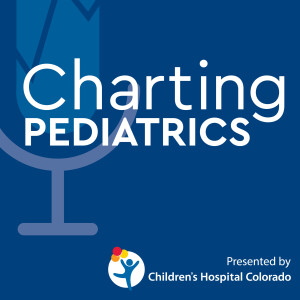
The Truth About Ticks: How Vector-Borne Diseases Can Affect Humans
 2023-10-31
2023-10-31
In the United States, 77% of vector-borne diseases are transmitted by ticks and numbers have increased dramatically in recent decades. While Lyme disease may be the most common in the country, with an estimated 475,000 new cases each year, there are many other vector-borne diseases affecting people every day. Information is constantly shifting related to current and predicted changes in the epidemiology of tick-borne diseases, age -specific clinical and laboratory manifestations, as well as treatment. In addition, there are many public misconceptions regarding vector-borne infections and approaches to infection. What is the risk of labeling someone as having Lyme disease and possibly missing the true diagnosis? We answer that question and many more on today’s episode. “When we think about tick-borne infections, I always like to focus on the tick, the organism that it transmits to and then on the disease process,” Lourdes Eguiguren, MD says.
This episode was recoded at the 2023 American Academy of Pediatrics National Conference and Exhibition in Washington, D.C., which provided us an opportunity to speak with experts in- person from across the country. As an infectious disease expert with a focus on tick-borne infection at Children’s Nebraska, Dr. Eguiguren is here to share her knowledge. She is an assistant professor in the division of infectious diseases at the University of Nebraska Medical Center. She has a passion for teaching trainees and connecting with her patients on a personal level. “Many times, we actually come up with a differential diagnosis or even the final diagnosis by talking to parents”, Dr. Eguiguren says.
Some highlights from this episode include:
- Key details about Lyme disease
- How disease is transmitted from tick to organism
- The impact of climate change on the prevalence of ticks
- Breaking down misconceptions about vector-borne infections
- What treatment options look like
For more information on Children’s Colorado, visit: childrenscolorado.org
More Episodes
 2024-11-05
2024-11-05
 2024-10-22
2024-10-22
 2024-10-15
2024-10-15
 2024-10-08
2024-10-08
 2024-10-01
2024-10-01
 2024-09-24
2024-09-24
 2024-09-17
2024-09-17
 2024-09-10
2024-09-10
 2024-09-03
2024-09-03
 2024-08-27
2024-08-27
 2024-08-20
2024-08-20
 2024-08-13
2024-08-13
 2024-08-06
2024-08-06
 2024-07-23
2024-07-23
 2024-07-16
2024-07-16
 2024-07-09
2024-07-09
 2024-07-02
2024-07-02
 2024-06-25
2024-06-25
Create your
podcast in
minutes
- Full-featured podcast site
- Unlimited storage and bandwidth
- Comprehensive podcast stats
- Distribute to Apple Podcasts, Spotify, and more
- Make money with your podcast
It is Free
- Privacy Policy
- Cookie Policy
- Terms of Use
- Consent Preferences
- Copyright © 2015-2024 Podbean.com




